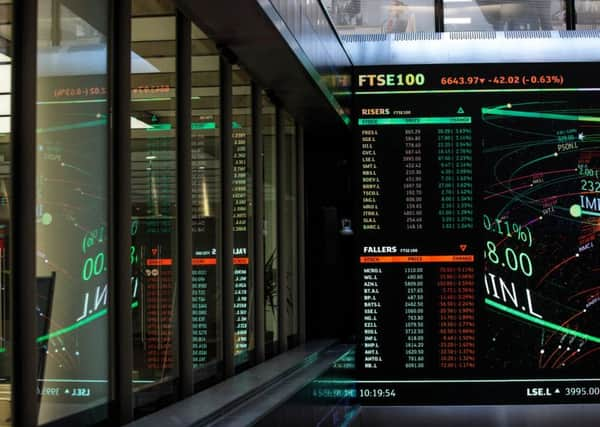Ros Snowdon: The best time to invest in stocks


Legend has it that bankers and investors used to take their money out of the stock market in May and stay away until the St Leger Day horse race in September.
This moveable date in September is the flagship day of the William Hill St Leger Festival, which attracts more than 30,000 racegoers to Doncaster Racecourse.
Advertisement
Hide AdAdvertisement
Hide AdYet analysis by Hargreaves Lansdown shows that this works only 36 per cent of the time, which means that 64 per cent of the time it is better to stay put.
The research also showed that investors who have sold in May have missed out on £73,000 since 1986.
Laith Khalaf, senior analyst at Hargreaves Lansdown, said investors give up valuable returns if they habitually sell in May and come back on St Leger Day.
This is even without calculating the costs they incur from trading their portfolio so frequently.
Advertisement
Hide AdAdvertisement
Hide AdAround a third of the time they can expect to avoid a market fall by pursuing this strategy, but mostly they’ll have to watch stocks rise while they sit on the side- lines.
The research showed that statistically, it’s June that has the worst performance record of any month in the calendar year.
However it is still close to a coin flip as to whether returns are positive or negative.
Some 58 per cent of the time, June proves negative for shareholders and 42 per cent of the time it is positive.
Advertisement
Hide AdAdvertisement
Hide AdJune is the only month in which investors have lost money on average, and even at its best it has mustered only 5.5 per cent growth.
The UK stock market rises most often in December (82 per cent of the time), with April posting a strong record too (76 per cent of the time).
Surprisingly, October also has a good statistical record overall (positive 73 per cent of the time) despite its reputation for being the month when the market has had its most notable crashes.
The single worst month on record was October 1987 when the market fell by 26.5 per cent.
Advertisement
Hide AdAdvertisement
Hide AdMr Khalaf warned that investing according to the seasons is about as advisable as using a horoscope to select your portfolio.
He said that in the dim and distant past there may have been some anecdotal truth in the idea that city types wearing bowler hats didn’t bother much with the stock market in the summer holiday season, but in today’s world of rolling news and continuous trading, professional investors can’t switch off for a moment, let alone a few months.
The UK stock market currently offers a healthy yield and is reasonably valued, although the continuing Brexit saga continues to weigh on sentiment and buying activity.
Mr Khalaf said it’s impossible to predict whether this summer will bring fine weather or storms for investors.
Advertisement
Hide AdAdvertisement
Hide AdIn the short term, the stock market is a capricious beast, which makes it all the more surprising how reliable it is in the long run.
Mr Khalaf advised that investors who want to hedge against a market fall immediately after investing should drip feed their money into stocks, to provide a smoother ride.
Hargreaves Lansdown said that over a long period of time missing the summer is seriously bad for your wealth.
£10,000 invested in the FTSE All Share in 1986 would now be worth £198,000, unless you’d sat out the summer in which case you’d only have £125,000.